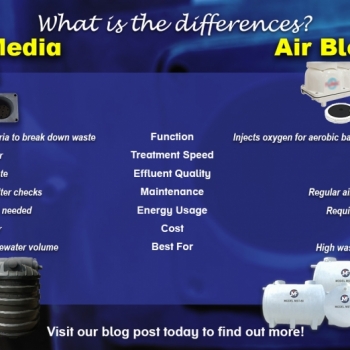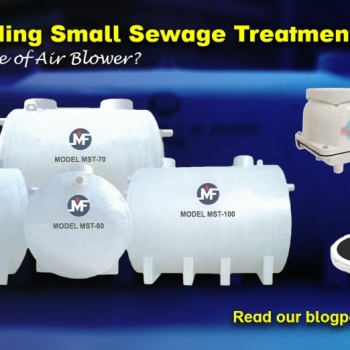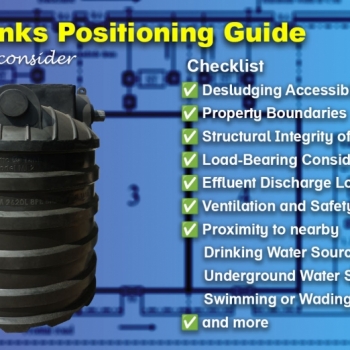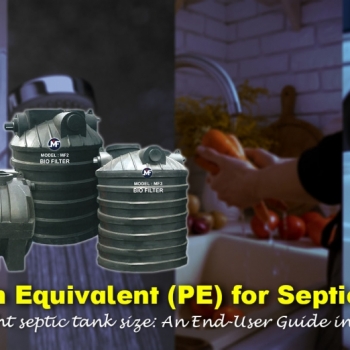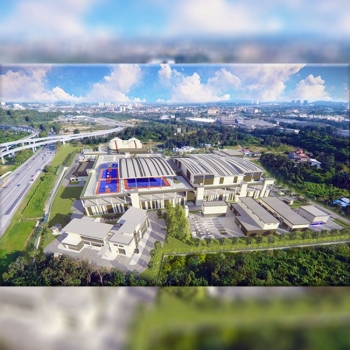Choosing between an individual septic tank with filter media and a mechanical septic tank with an air blower depends on efficiency, cost, and maintenance. This article breaks down their key differences to help you select the right wastewater treatment solution.
Why Desludging Your Septic Tank Every 2 Years Matters
18 Oct 2024
Septic Tank Maintenance: Essential Tips for a Healthy System
Septic Tank Maintenance: Essential Tips for a Healthy System
- 10 Reasons Why We Need to Desludge Our Septic Tank Once Every 2 Years
- 1. Prevent Blockages and Backups
- 2. Maintain Efficient Waste Breakdown
- 3. Avoid Costly Repairs
- 4. Safeguard Your Environment
- 5. Prolong the Lifespan of Your Septic System
- 6. Comply with Local Health Regulations
- 7. Eliminate Odors
- 8. Prevent Soil Saturation and Drain Field Failure
- 9. Protect Your Family's Health
- 10. Reduce Environmental Impact
- Conclusion
- Frequently Asked Questions (FAQs)
10 Reasons Why We Need to Desludge Our Septic Tank Once Every 2 Years
Septic tanks play a crucial role in managing septage and domestic sanitary wastewater, particularly for homes and businesses that are not connected to a municipal sewer system. However, they require regular maintenance to function properly, and one of the most important steps in septic care is desludging. This involves removing the solid waste that accumulates at the bottom of the tank over time. While the frequency may vary depending on usage, desludging every two years is generally recommended for septic tank systems to avoid serious problems. Here are 10 key reasons why regular septic tank desludging is essential.
1. Prevent Blockages and Backups
One of the most important reasons to desludge your septic tank regularly is to prevent blockages and sewage backups. As solid waste accumulates in the tank, it reduces the tank’s capacity to handle incoming waste, eventually leading to clogging. If your septic tank becomes too full, untreated sewage can back up into your home, causing significant damage and posing serious health risks. By desludging every two years, you can avoid this costly and unpleasant scenario.
Protect your home from sewage overflow
Sewage overflow can lead to not only foul odors but also hazardous conditions. Regular maintenance ensures that the system can continue to process waste efficiently without the risk of overflows.
2. Maintain Efficient Waste Breakdown
Septic tanks rely on natural bacteria to break down waste. Over time, if too much sludge accumulates, these bacteria can’t effectively decompose the waste. Desludging allows the tank to maintain an optimal environment for bacterial activity, ensuring that the system works efficiently.
Support proper septic system functioning
By regularly desludging, you help ensure that your tank’s bacteria can continue to process waste effectively, reducing the likelihood of unpleasant smells and ensuring smooth operation.
3. Avoid Costly Repairs
Ignoring regular septic tank maintenance can result in expensive repairs down the road. When a tank is not desludged, sludge can escape into the drain field or clog pipes, leading to system failure. Once this happens, repairing or replacing the septic system can be very expensive. Desludging every two years is a relatively inexpensive preventive measure that can save you thousands in potential repair costs.
Save money by preventing major system failures
Think of desludging as a small investment toward the long-term care of your septic system. It is much easier—and cheaper—to perform regular maintenance than to replace your entire system.
4. Safeguard Your Environment
A poorly maintained septic tank can cause untreated sewage to leak into the soil and potentially contaminate local water sources. This not only damages the environment but can also affect the health of those living nearby. Protecting groundwater from contamination is a critical responsibility for septic tank owners, and regular desludging is a crucial step in preventing these dangerous leaks.
Protect groundwater and prevent contamination
When septic tanks overflow, they can leach harmful chemicals and bacteria into the groundwater. This can affect not only the environment but also your local community’s water supply. Regular desludging ensures that your septic tank doesn’t pose a threat to the environment.
5. Prolong the Lifespan of Your Septic System
Septic tanks, like any other system, have a finite lifespan. However, you can significantly extend this lifespan by performing regular maintenance, such as desludging. Tanks that are regularly maintained can last for decades, while those that are neglected may need to be replaced much sooner.
Regular desludging reduces system wear and tear
By keeping your septic tank in good working order through regular desludging, you can prevent unnecessary strain on the system, prolonging its lifespan and minimizing the need for costly replacements.
6. Comply with Local Health Regulations
Many regions have health regulations that require septic tanks to be maintained at certain intervals. By desludging your septic tank every two years, you ensure that you remain in compliance with these local health and safety standards. Septic tank maintenance tips are often provided by local authorities to help homeowners understand the importance of regular care.
Ensure your system meets regulatory standards
Failing to comply with these regulations can lead to fines or even the forced replacement of your system. Stay on top of your septic tank maintenance to avoid legal issues.
7. Eliminate Odors
A septic tank that is full of sludge can produce unpleasant odors, both inside and outside your home. These odors can make living conditions uncomfortable and may even drive away potential visitors or customers if you run a business. Regular desludging eliminates these odors by ensuring that the waste in your tank is properly processed.
Keep unpleasant smells at bay
Preventing odors is one of the more immediate benefits of regular desludging. It helps maintain a clean and comfortable environment around your home or workplace.
8. Prevent Soil Saturation and Drain Field Failure
The drain field is a critical part of your septic system that helps filter wastewater into the soil. If too much sludge accumulates in your tank, it can spill over into the drain field, leading to soil saturation and system failure. Desludging your septic tank ensures that only liquid waste enters the drain field, preventing these issues.
Ensure proper drainage in your leach field
Proper drainage is essential to the long-term health of your septic system. Regular desludging prevents the sludge from overwhelming your drain field, allowing it to continue filtering wastewater effectively.
9. Protect Your Family's Health
Septic systems handle dangerous waste in the tank, and if they are not maintained properly, harmful bacteria and pathogens can escape into your home or yard. These pathogens pose a serious risk to your family’s health. Regular desludging reduces this risk by ensuring that your septic system is working as it should, keeping harmful bacteria contained and properly processed.
Minimize exposure to harmful bacteria and pathogens
Ensuring that your septic tank is regularly desludged helps prevent the spread of dangerous pathogens and keeps your family safe from potential health hazards.
10. Reduce Environmental Impact
A well-maintained septic tank system reduces your overall environmental impact by properly processing waste. Desludging helps ensure that your septic tank system continues to operate efficiently, reducing the likelihood of leaks or failures that can harm the environment.
Desludging helps manage waste sustainably
By keeping your septic tank in good working order, you minimize its environmental footprint and help protect local ecosystems from contamination. Regular maintenance is key to protecting groundwater from contamination.
.jpg) Conclusion
Conclusion
Regular septic tank desludging every two years is a small investment that pays off significantly in the long run. By maintaining your system, you prevent blockages, reduce the risk of costly repairs, and ensure your family’s safety and health. You’ll also be playing an important role in protecting the environment by preventing contamination and reducing your septic system's environmental impact. Desludging isn’t just about compliance with regulations; it’s about safeguarding your home and the surrounding ecosystem.
If you’re looking for reliable, high-quality septic tanks or complete septic systems, reach out to Mui Fatt via our website or by contacting our Sales Team via WhatsApp or email at sales@muifatt.com.my. Our team is ready to assist you with industry-leading solutions tailored to your needs.
Frequently Asked Questions (FAQs)
Why should I desludge my septic tank every two years?
Regular desludging prevents blockages, maintains system efficiency, and prolongs your septic tank's lifespan.
What happens if I don't desludge my septic tank?
Over time, sludge builds up, leading to blockages, backups, and possibly even system failure or environmental contamination.
How do I know when my septic tank needs desludging?
Signs include slow drainage, unpleasant odors, gurgling pipes, or sewage backups. However, it's best to adhere to a bi-annual schedule for preventive care.
How is desludging performed?
A professional service uses specialized equipment to pump out accumulated sludge and inspect your septic tank for any issues.
Does regular desludging affect the environment positively?
Yes, it prevents septic overflow, which can pollute groundwater and local ecosystems.
Disclaimer:-
The information provided on this website is for general informational purposes only and does not constitute legal advice. While we strive to ensure the accuracy and reliability of the information provided, we make no representations or warranties of any kind, express or implied, about the completeness, accuracy, reliability, suitability, or availability concerning the information contained herein. Any reliance you place on such information is therefore strictly at your own risk. This website may contain links to other third-party websites. Such links are only for the convenience of the reader, user, or browser; which we do not warrant, recommend, endorse, or assume liability for the contents of the third-party sites.
Keep in touch with us should you be keen on receiving timely updates from us
- Website - https://www.muifatt.com.my/home/
- Facebook - https://www.facebook.com/muifattmarketing
- Instagram - https://www.instagram.com/muifattmarketing/
- Google - https://goo.gl/maps/WxVY13gNcaRTS7Jp6
- Youtube - http://www.youtube.com/@MuiFattMarketing
- TikTok - https://www.tiktok.com/@muifattmarketing
- LinkedIn - https://www.linkedin.com/company/mui-fatt-marketing-sdn-bhd-
- Linktree - https://linktr.ee/muifattmarketing
- Shopee - https://www.shopee.com.my/muifattmarketing
- Lazada - https://www.lazada.com.my/shop/mui-fatt-marketing
Recent Blog
The Role of Air Blower in Mechanical Septic Tanks
Unlike traditional septic systems, mechanical septic tanks use air blowers to accelerate wastewater treatment. This article explores how air blowers enhance aeration, promote bacterial breakdown, and ensure a more effective sewage treatment system in Malaysia.
The Role of Filter Media in Individual Septic Tanks
Filter media plays a critical role in solid-liquid separation and biological treatment in individual septic tanks. This article explores the importance, types, and benefits of filter media in wastewater treatment, helping you make an informed decision when selecting a septic system in Malaysia.
Where Should You Place Your Septic Tank? Key Factors to Consider
Proper septic tank placement is crucial for efficient wastewater treatment. Learn why septic tanks should not be placed inside a house, how their location impacts wastewater disposal, and how to determine the best site for installation.
Simplified IWK Submission Process for Septic Tank Approvals in Malaysia
Navigating the IWK submission process can be challenging. Discover our simplified steps and professional advice for hassle-free septic tank approvals.
Understanding Population Equivalent (PE) for Septic Tanks: An End-User Guide
Discover what Population Equivalent (PE) is and its importance for septic systems, with an easy-to-follow guide for end-users, potential issues of choosing the wrong capacity, and expert tips from Mui Fatt.
Understanding Biodegradable Septic Tanks: A Guide in Malaysia
This article explores biodegradable septic tanks, covering their materials, operations, costs, and maintenance. It also explains why they're rare in Malaysia and introduces alternative sustainable options.
Individual Septic Tanks: A Viable Solution for Rapid Housing Growth in Langat
Discover why individual septic tanks are an ideal solution for new housing developments in areas underserved by the Langat Centralized Sewage Treatment Plant. Learn about their benefits, installation process, and environmental impact.



